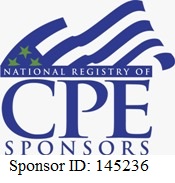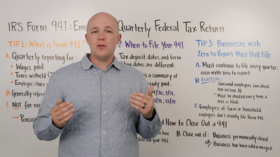Description
When taxpayers fail to meet their tax obligations the IRS can charge penalties. Penalties accrue interest if they are not paid in full. Owing tax is stressful and it’s made even more so when the debt continues to grow.
Clients often ask whether they can pay their tax debt without paying penalties and interest. Knowing when and how penalties can be avoided, disputed, or abated is a valuable skill in tax practice and can result in cutting your client’s tax debt by at least 1/3.
Cut debt quickly: learn when and how penalties can be abated immediately.
Cut debt permanently: timing is important; if your client cannot pay their balance in full in a reasonable amount of time, learn when and how penalties max out so that you can rest assured no additional penalties will accrue.
This webinar will teach you all that you need to know and provide examples of legal and factual arguments used in successful abatement requests.
In this two-hour webinar, you will learn:
- The different types of penalties and when they apply
- How penalties can be avoided
- How penalties can be disputed
- Defenses to penalties
- How to determine which penalty abatement process to use
- The requirements for First Time Abatement
- The requirements for reasonable cause abatement
- The questions to ask to build a case for abatement
- How to prepare a reasonable cause abatement request
- Appealing a reasonable cause abatement denial
- Using an offer to reduce penalties and interest
- Abating penalties in an audit and Tax Court
- Recent developments and issues related to penalties
- The rare circumstances in which interest can be abated
Who Will Benefit:
- CPAs
- Enrolled agents
- Attorneys
- Finance professionals
- Financial planners
- Tax Professionals
Session Prerequisites and preparation: None
Recommended CPE credit – 2.0
Recommended field of study – Tax
Session learning level: Basic to intermediate
Delivery method: Group Internet Base
This program has been approved for 2 CPE credits under NASBA.




 This program has been approved for 2 CPE credits under NASBA.
This program has been approved for 2 CPE credits under NASBA. 


